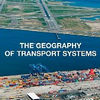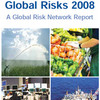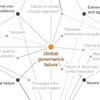 To make up for yesterday’s perhaps overly harsh critique of just one article from this book, this is a full and proper content review. Managing Risks in Supply Chains: How to Build Reliable Collaboration in Logistics
To make up for yesterday’s perhaps overly harsh critique of just one article from this book, this is a full and proper content review. Managing Risks in Supply Chains: How to Build Reliable Collaboration in Logistics, edited by Wolfgang Kersten and Thorsten Blecker, is a collection of articles by various researchers from mostly Germany and Austria, and lo and behold, Marco Moder, whose PhD on Supply Frühwarnsysteme has been reviewed on this blog previously, is also among the contributors. This book has been out for a while, but I didn’t discover it until recently, and now my library finally bought a copy for me to read and review for the readers of my blog.
Four parts
The book contains 19 articles in four sections:
- Theoretical Approaches to Supply Chain Risk
- Empirical Approaches to Supply Chain Risk
- Analysing Risk
- Managing Supply Chain Risks
The articles are taken from a wide range of industries and use many different approaches, such that most researchers in supply chain risk will find at least one article that matches their interests. I found several that relate to my own specialization, supply chain disruptions in sparse transportation networks.
Theoretical Approaches to Supply Chain Risk
Supply Chain Risk Management: Development of a Theoretical and Empirical Framework by Wolfgang Kersten, Mareike Böger, Philipp Hohrath, and Hagen Späth develops a framework for supply chain risk management, using a highly interesting top-down approach to risk selection
Integrated Performance – And Risk Management in Supply Chains – Basics and Methods by Herwig Winkler and Bernd Kaluza clearly bears Winkler’s signature in clear-cut simple and excellent illustrations, and integrates performance measures with risk management measures.
Complexity-Induced Supply Chain Risks – Interdependencies between Supply Chain Risk and Complexity Management by Corinna Engelhardt-Nowitzki and Helmut E. Zsifkovits discusses the contradiction that many companies face: a sufficient stability towards risks and a sufficient flexibility towards sudden and necessary adaptations.
Reliability Improvement in Supply Chain Design Under Demand and Supply Uncertainties by Ilham Kissani is a paper for the mathematically or probabilistically inclined, using interference theory for assessing the reliability of suppliers.
Empirical Approaches for Supply Chain Risk Management
An Empirical Investigation into Supply Chain Vulnerability experienced by German Firms by Stephan M. Wagner and Christoph Bode is perhaps one of the first of the many articles by the same authors on the same subject, where they have surveyed 760 firms in Germany on their exposure to supply chain risks.
Enterprise and Supply Risk Management from the Perspective of Internal and External Auditors by Michael Henke, Reiner Kurzhals, and Christopher Jahns takes a closer look at enterprise risk management and how it can and should be audited. But why is De Loach, J. W. (2000). Enterprise-wide Risk Management: Strategies for linking risk and opportunity missing from their references?
Risk Management in Supply Chains Behavioural Risks: The Underestimated Force by Mischa Seiter explores principal-agent theory and opportunism in supply chains, and how to avoid it, if possible.
Evaluation of Transportation Network Reliability in Incidents by Afshin Shariat Mohaimani, Poria Mohammadian, and Navid Kalantari seems slightly out of line with supply chain risks being the main topic of the book, since their paper deals with accessibility as measure of transport network reliability. Although the importance of transportation networks as part of supply chains is mentioned, the word “supply chain” appears only once in their chapter and the word “risk” does not appear at all.
Managing Risk and Complexity in the South African Automotive Supply Chain in A Black Economic Empowerment (Bee) Environment: A Case Study by Gideon Horn explores how the Black Economic Empowerment (BEE) policies of the South African government has affected supply chains in terms of risk and complexity and how a lack of competitiveness has a negative impact on risk.
Analysing Risk
A Tool for Assessing Product Non-Compliance Risks in Supply Chains by Alex Martin, Kieren Mayers, and Chris France discusses the novel use of FMEA – Failure Mode and Effects Analysis – as a tool for identifying and prioritizing non-compliance risks to which their businesses have been, or could become, exposed to.
Assessment of the Uncertainty of Delivery – Promises to Increase the Reliability of Production Networks by Lars Zschorn develops a probabilistic method for assessing the uncertainty of delivery of all supply chain network participants.
Identification of Key Risk Factors for Logistics Outsourcing – A Case of Retailing Industry in Taiwan by Ming-Chih Tsai, Shu-Chun Hung, and Chia-Shing Han describes a risk analysis model for logistics outsourcing, based on qualitative risk asessment. Here, time delays appear to have the biggest impact on supply chain performance.
Managing Supply Chain Risks
Managing Supply Risks: A System Theory Approach to Supply Early Warning Systems by Christopher Jahns, Evi Hartmann, and Marco Moder shoes how a Supply early warning System can be developed and put into use. It appears that the paper describes the research model that Marco Moder later used in in his PhD dissertation on Supply Frühwarnsysteme.
Mitigating Risk during Strategic Supply Network Modelling by Nikolaus Müssigmann is perhaps mis-titled. The word “during” is likely a wrong translation of the German “durch”, meaning “through”, and with that word, the title makes a bit more sense., although “in” is maybe what it should have been? In any case, the paper looks at strategic supply networks, which are seen as hybrid corporate networks of legally independent, but economically dependent companies led by a focal organization, i.e. Virtual Enterprise Networks, not?
Risk Management for Agent Based Autonomous Logistic Objects by Boris Bemeleit, Martin Lorenz, Jens Schumacher, and Otthein Herzog is a very abstract sounding title, and it is indeed a very abstract concept I had a hard time grasping the essence of.
Risk Management in Maritime Transportation Networks by Christian Nedeß, Axel Friedewald, Lars Wagner, and Lutz Neumann is a highly interesting paper that I can fully relate. Not only does it look at maritime networks alone, but in particular does it investigate the risks associated with intermodal transports, where modes intersect, e.g. going from sea to road or sea to rail and vice versa.
Design Risk Management: A New Framework for Managing Supply Chain Risk by Omera Khan deals with how UK retailer Marks & Spencer changed their sourcing policies, thus completely changing their company’s supply chain risk profile, since product design does have an impact on supply chain risk.
The Marketing Mix in the Brazilian Maritime Transportation Market for Liner Shipping: A Multicase Study by Fernando Ribeiro dos Santos, Léo Tadeu Robles, and Marisa Nobre is another paper that is perhaps out of line with the book’s main thrust. That said, it is a detailed an in-depth analysis of the Brazilian Liner Shipping market that is well worth reading, albeit I fail to see the linkage with supply chain risk.
Creating Shareholder Value through Value-Driven Supply Chain Management by Heimo Losbichler and Markus Rothboeck has the honor of concluding this book, and looks at which SCM strategies and investments that create the most value. Interesting in terms of analyzing supply chain performance, yes, but also the third paper not explicitly dealing with supply chain risk.
Conclusion
Overall, this is an excellent book, and if you Thorsten or Wolfgang happen to read this, I do feel a bit guilty for bashing your editorial skills in my previous post. Apart from that glitch this is a terrific collection of articles on supply chain risk, which has added many hitherto unknown German-speaking researchers to my list of must-look-further-into references. Kudos on a job well done.
Reference
Kersten, W., Blecker, T. (Eds.) (2006) Managing Risks in Supply Chains: How to Build Reliable Collaboration in Logistics. Berlin: Erich Schmidt Verlag.
Author link
- tu-harburg.de: Thorsten Blecker
- tu-harburg.de: Wolfgang KerstenI’ve added links to the individual chapter authors where possible, but I wasn’t able to locate all. If you find a link to one of the authors who doesn’t have a link, please let me know using the comment field below.
Publisher link
- esv.info: Managing Risks in Supply Chains
amazon
- Buy this book at amazon: Managing Risks in Supply Chains
Related
- husdal.com: Editorial glitch or carelessness?












